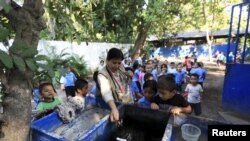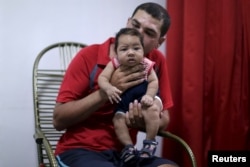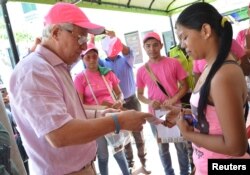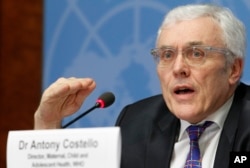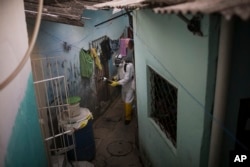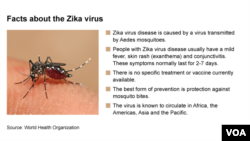U.N. agencies are mobilizing communities in Latin America and the Caribbean to stop the spread of the Zika virus, which has infected tens of thousands of people in about 25 countries.
The Zika virus in itself is not much of a threat. Its symptoms are mild and not life threatening. But, the virus is suspected of causing birth defects in newborn babies. More than 4,000 cases of microcephaly, a condition that causes abnormally small brains in babies, have been found in Brazil.
The explosive surge of this disease has prompted the World Health Organization to declare the Zika virus a global public health emergency.
No vaccine is available to protect pregnant women against the virus. So, WHO is urging communities to do battle against the disease to protect pregnant women from being bitten by the Aedes mosquito, which transmits the virus.
Involving communities
WHO Maternal Health Director Anthony Costello says communities must remove all stagnant pools where the mosquitoes flourish.
He says mass community engagement and mobilization of women’s groups can do a lot to provide women and pregnant mothers with the information they need to protect themselves and their babies.
“If we learned one thing from Ebola, mobilizing communities is an absolutely critical public health measure," he said. "And, then we need to educate health workers, particularly the midwives and obstetricians and health care workers that look after women and make sure that everyone gets the information on risks and diagnostics as hopefully the situation changes.”
Brazil mobilization campaign
Spokesman Christof Boulierac says the U.N. children’s fund is running a community mobilization campaign in Brazil with messages on how to avoid mosquito bites and eliminate breeding sites.
“Including using insect repellent... covering as much of the body as possible with long, light-colored clothing, removing places where mosquitoes can breed and putting screens on windows and doors,” he explained.
UNICEF is mainly engaged in Brazil, but the agency is also scaling up its support to other countries in the region as a precautionary measure. UNICEF is launching a $9 million appeal to finance the programs.




